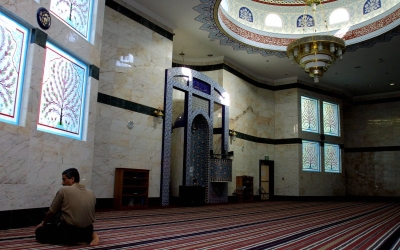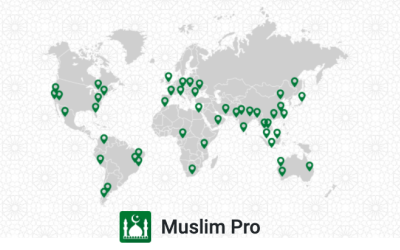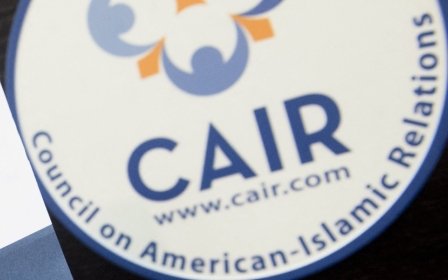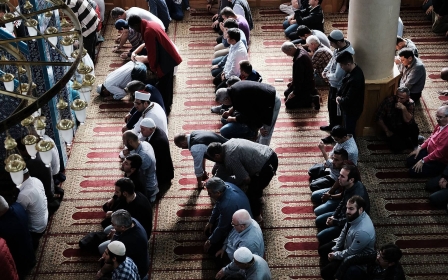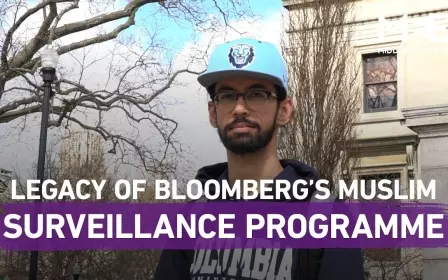US: Ohio Muslim community shocked after ‘spy’ identified
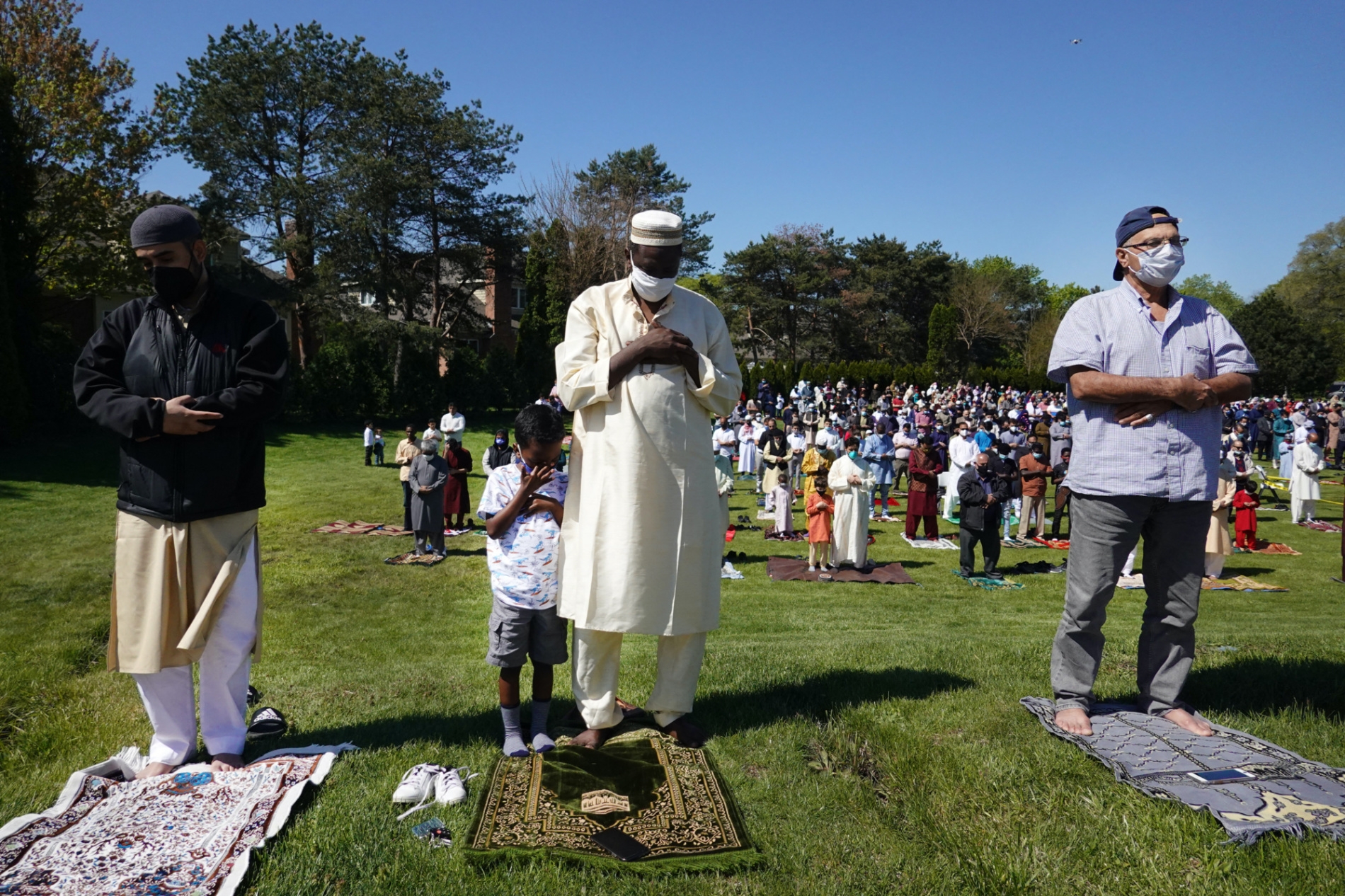
When Khalid Dada, a young undergraduate student at Ohio State University, began interning at the Ohio chapter of the Council on American-Islamic Relations (Cair), he never expected someone he admired to be identified by the organisation as a "spy".
Romin Iqbal, Cair-Ohio’s legal and executive director who had been leading the chapter since 2006, was someone Dada would see at the office daily. He knew him as a lawyer people trusted, who was deeply involved in the community and who helped those in trouble get out of bad situations.
New MEE newsletter: Jerusalem Dispatch
Sign up to get the latest insights and analysis on Israel-Palestine, alongside Turkey Unpacked and other MEE newsletters
When Cair revealed that Iqbal was allegedly recording and sharing information around its advocacy work with the Investigative Project on Terrorism (IPT), a group identified as part of an "Islamophobia network" in the US, the community in Columbus, Ohio, felt shocked and betrayed.
"This was the man who you went to when the FBI knocked on your door, and now this man has been accused of working for a group planning around hate for Islam," Dada told Middle East Eye. "This is a community issue, not just a Cair-Ohio issue."
The allegations
On 14 December, Cair-Ohio released a statement saying Iqbal had been sharing information with the anti-Muslim group and was terminated.
"For years, Mr Iqbal was secretly sharing confidential information about our civil rights work - including surreptitiously recorded conversations, strategic plans, and private emails - with anti-Muslim extremists," Nihad Awad, Cair's national and executive director said in a statement.
"He did this in violation of his ethical duties to the organization and his moral duty to protect the Ohio Muslim community."
A week later, Cair announced that a second individual, whose identity has yet to be revealed, confessed to working with IPT and was allegedly paid $3,000 a month, a total of more than $100,000 over more than four years, by the group's founder, Steven Emerson, to spy on a mosque in the US and "record prominent Muslim leaders". This individual was not a member of Cair.
"One of Emerson's goals, we were told, was protecting the Israeli government by undermining Muslims engaged in political and human rights activism," Cair said.
Despite Muslims experiencing surveillance by the government in numerous ways for at least the past two decades, for the tight-knit Columbus community where Cair is a huge part of the Muslim experience, the news still came as a surprise.
Middle East Eye reached out to Iqbal but did not receive a response.
The IPT told MEE in a statement that it "has never and will never monitor the wider American Muslim community", but added that it would not hesitate to report on groups such as Cair, which it accused of conducting "radical Islamist activity".
Jana al-Akhras, an immigration attorney, has known Iqbal since she was a child, being involved with Cair from a young age.
"The thing about Cair roles is that, in order to be productive, you need to know who the community is. In order to be helpful, you need to be involved. And he did that role very well," she told MEE.
'This was the man who you went to when the FBI knocked on your door, and now this man has been accused of working for a group planning around hate for Islam'
- Khalid Dada
After graduating from law school, she would often be contacted by university students asking where they could intern or work in research; she would always refer them to Iqbal.
"I think the fear people have is coming more from a place of shock. When you know somebody for this long, it feels like the most unlikely thing that would happen," Akhras said.
"I think the thing people are scared of is what exactly is the information that was being funneled upwards. What exactly was it that he was looking for and why was he looking for it for so long?"
Iqbal's termination was followed by a third-party investigation conducted by a forensic expert retained by Cair-National. The Cair Columbus chapter discovered that a credit card administered by the former director was used to make purchases from gun retailers. It said it also found a package mailed to the office containing parts for an AR-15 rifle.
"When someone is in an organisation for 15 years and you find out later that 13 of those years included spying... what could you do in that situation?" asked Akhras.
"The answer is legitimately nothing, and I think that is the hard part."
Desperate for answers
A day after the Cair announcement, the Noor Islamic Cultural Center (NICC) was getting ready to host a fundraiser. The NICC leadership soon decided to cancel the event at its mosque and hold a community healing session instead. Many showed up, both in person and virtually, desperate for answers.
Dr Ronney Abaza, the board chairman of NICC and a board member at Cair-Ohio, explained that this type of surveillance did not occur only in Muslim groups, but in all organisations. And one way to keep moving forward, he said, is for organisations not to allow "outliers", to prevent them from working collectively and cause suspicion among them.
"What we need to do is recognise that there may be one or two people here and there that are going to be spying on us, but that the vast majority of people who are dedicated and passionate about this work," Abaza said.
"We don't have anything to hide. Our [mosque] leadership is not doing anything illegal or anything that should cause suspicion from our government.
"Our imam doesn't say anything in the khutbah [sermon] that he wouldn't say on the TV or in public with non-Muslims around."
What comes next?
In order to stop such surveillance, efforts need to be taken on the systemic level, rather than individually, according to Fatema Ahmad, the executive director at the Muslim Justice League.
Ahmad told MEE that hearing about such types of surveillance was frustrating and an awful reminder that US Muslims get no privacy.
She explained that groups such as IPT are sanctioned by the Internal Revenue Service (IRS), the tax service for the US government. What this essentially means is that the IRS qualifies IPT as a charitable organisation that can receive donations.
"We need scrutiny on the fact that these anti-Muslim non-profit organisations exist and are getting this kind of money," she said.
The Muslim Justice League has pressured groups such as Fidelity Charitable, a big donor foundation in the US, to drop organisations like IPT from their institutions.
"If the IRS won't do it, at least foundations should say 'we are not going to allow money to go to any institutions like this'," Ahmad said.
'We need scrutiny on the fact that these anti-Muslim non-profit organisations exist and are getting this kind of money'
- Fatema Ahmad, Muslim Justice League
"We have to look at why IPT exists and why they have a $3m budget where they are able to pay people to do something like this. And we have to look at what we can do about it."
But more locally, community members should be looking into what their safety protocols are, she added.
Activists, she said, must ask: "Who do you trust around you? What happens if someone comes to the mosque and they don't have a home to stay in? What do I do when I am suspicious of somebody in my community? How are we taking care of each other?"
She explained that community members should call on their mosque leadership to stop working with organisations who have conducted surveillance, or organisations who are anti-Muslim.
"We need to look at who we are partnering with, how we are advancing civil rights for our communities in ways that are principles and have integrity, and how we are going to push back on collaboration with law enforcement," she said.
"I think that is what people struggle with. And we need to take a hard look at that."
Middle East Eye delivers independent and unrivalled coverage and analysis of the Middle East, North Africa and beyond. To learn more about republishing this content and the associated fees, please fill out this form. More about MEE can be found here.


